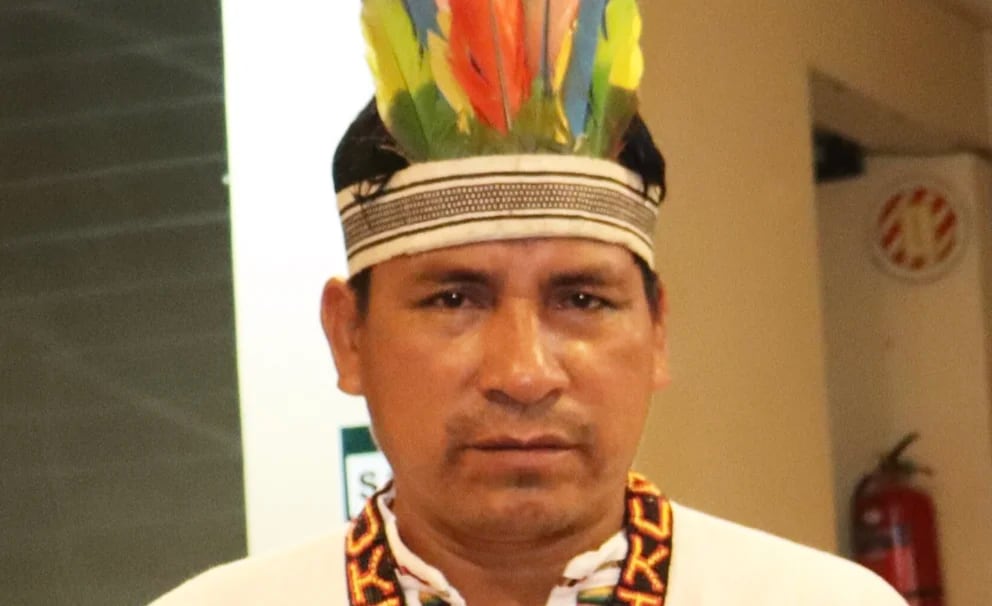Massive deforestation in Borneo destroying orangutan habitat
- Details
 Over the past decade, Indonesia’s deforestation rate has significantly declined, including in the pulp and palm oil sectors. But now commodity-driven deforestation is making a resurgence in Indonesia according to recent spatial analysis. PT Mayawana Persada which operates a pulpwood concession in West Kalimantan province on the island of Borneo, is leading Indonesia’s new wave of deforestation. The report provides evidence that these companies are linked with Royal Golden Eagle, a corporate group controlled by Sukanto Tanoto that owns the second large paper company in Indonesia: APRIL.
Over the past decade, Indonesia’s deforestation rate has significantly declined, including in the pulp and palm oil sectors. But now commodity-driven deforestation is making a resurgence in Indonesia according to recent spatial analysis. PT Mayawana Persada which operates a pulpwood concession in West Kalimantan province on the island of Borneo, is leading Indonesia’s new wave of deforestation. The report provides evidence that these companies are linked with Royal Golden Eagle, a corporate group controlled by Sukanto Tanoto that owns the second large paper company in Indonesia: APRIL.
Kichwa tribal leader murdered in Peru
- Details
 Quinto Inuma Alvarado, Kichwa tribal leader has been shot to death in an area of the Peruvian rainforest that's seen high tensions between Indigenous people and illegal loggers. He was attacked as he was returning from presenting at a workshop for women environmental leaders in the San Martín region of the Amazon on Wednesday. Peruvian police confirmed his death.
Quinto Inuma Alvarado, Kichwa tribal leader has been shot to death in an area of the Peruvian rainforest that's seen high tensions between Indigenous people and illegal loggers. He was attacked as he was returning from presenting at a workshop for women environmental leaders in the San Martín region of the Amazon on Wednesday. Peruvian police confirmed his death.
"Green energy” destroys Papua’s forests
- Details
 A plantation project in Papua has destroyed thousands of hectares of rainforest and decimated the traditional food sources of indigenous peoples, an investigation by The Gecko Project found. Indonesian government support for biomass project raises questions over the consistency of its climate change policies.
A plantation project in Papua has destroyed thousands of hectares of rainforest and decimated the traditional food sources of indigenous peoples, an investigation by The Gecko Project found. Indonesian government support for biomass project raises questions over the consistency of its climate change policies.
Pulping Borneo
- Details
 A new investigative report, Pulping Borneo, finds that the Royal Golden Eagle (RGE) Group, the world’s largest viscose producer and major paper products company, continues to rely on deforestation in its supply chain despite a high-profile commitment to “No-Deforestation”. The report, co-published by five organizations, also reveals a chain of offshore shell companies pointing to RGE Group control behind a new mega-scale pulp mill in North Kalimantan, putting some of the world’s largest remaining rainforests at risk.
A new investigative report, Pulping Borneo, finds that the Royal Golden Eagle (RGE) Group, the world’s largest viscose producer and major paper products company, continues to rely on deforestation in its supply chain despite a high-profile commitment to “No-Deforestation”. The report, co-published by five organizations, also reveals a chain of offshore shell companies pointing to RGE Group control behind a new mega-scale pulp mill in North Kalimantan, putting some of the world’s largest remaining rainforests at risk. More than 500 scientists write to the EU urging to protect forests
- Details
 554 scientists wrote a letter to the European institutions urging them to assure "protection and restoration of natural forests is beneficial both for the climate and for biodiversity". Between "conservation of biodiversity and addressing climate change and, on the other hand, the short-term economic gain provided by logging" they say, "the former should prevail. Therefore, we urge the commission to take immediate steps to drastically reduce logging throughout the EU."
554 scientists wrote a letter to the European institutions urging them to assure "protection and restoration of natural forests is beneficial both for the climate and for biodiversity". Between "conservation of biodiversity and addressing climate change and, on the other hand, the short-term economic gain provided by logging" they say, "the former should prevail. Therefore, we urge the commission to take immediate steps to drastically reduce logging throughout the EU."



